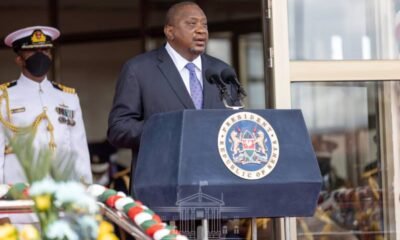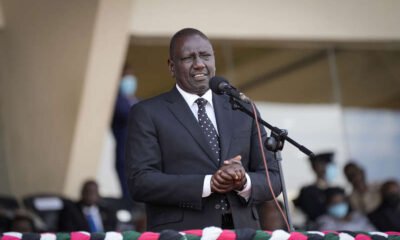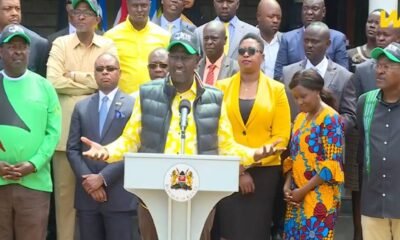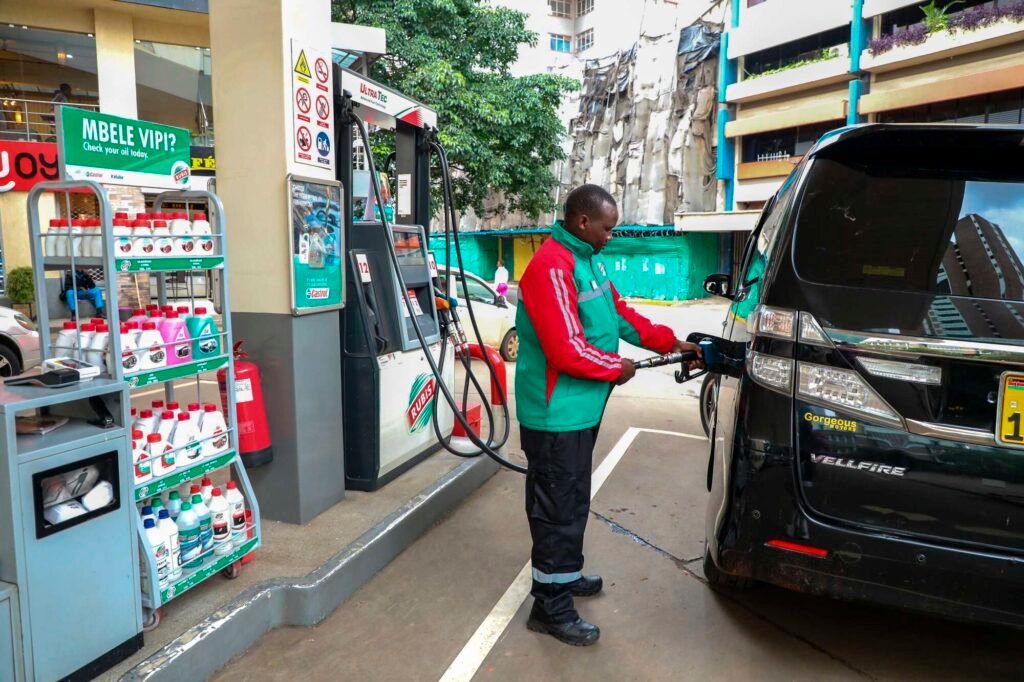General News
Police Mental Health A Predicament – President Uhuru
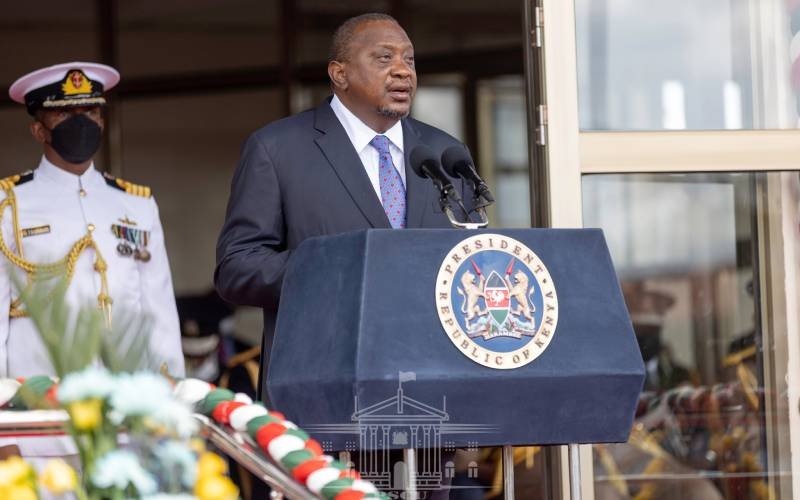
President Uhuru Kenyatta has called on police officers to open up if faced with tough situations, to avoid incidents that result in murder-suicide.
“There is no need to result in harmful practices. Your gun should be used to save lives, not take them,” the president noted.
Uhuru acknowledged that mental health is a serious predicament in the country, but one that can be addressed if affected persons reach out.
“There is so much going on in the world, but it doesn’t hurt to share your problems.”
The Head of State, who was inspecting a pass-out parade of General Service Unit (GSU) officers at Embakasi, Nairobi, encouraged officers to consult their peers, employers, and family members when faced with difficult times, adding that their issues can be addressed.
“Please step forward. There is no shame in it…we can find solutions and help you become even better officers,” he said.
His appeal comes in the wake of rising murder and suicide cases in the police force.
On Tuesday, a police officer identified as Benson Imbatu killed six people in a shooting spree in Nairobi’s Kabete area.
Imbatu fatally shot his girlfriend and three boda-boda riders before turning the gun on himself.
It also happened that Police Constable Edwin Muhula, attached to Ganga Police Post in Busia County, shot his wife before pulling the trigger on himself on June 24 this year.
In August, the National Police Service Commission (NPSC) rolled out a nationwide mental assessment of all officers, aimed at addressing depression within the service.
General News
IMF Criticizes Kenya’s Fuel Subsidy Re-Introduction, Warns of Budget Distortion

The International Monetary Fund (IMF) has criticized Kenya for re-implementing the fuel subsidy scheme, expressing concerns that the lack of funds to pay oil marketers could distort the budget.
Despite a previous commitment by President William Ruto in 2022 not to subsidize pump prices, the government reintroduced the subsidy, preventing petrol and diesel prices from reaching higher levels in October 2023.
The IMF argues that the subsidy was applied without available funds, as the Treasury has yet to pay oil marketers at least Ksh9 billion ($55.6 million) accumulated from the previous year. President Ruto’s decision to reinstate subsidies goes against conditions set by the IMF for accessing loans.
Petrol and diesel prices, which were Ksh217.36 ($1.34) and Ksh205.47 ($1.27) respectively in Nairobi in October 2023, remained lower than the potential Ksh220.43 ($1.36) and Ksh217.11 ($1.34) due to the subsidy. However, the IMF disapproves of the decision, emphasizing that the removal of the subsidy was a key condition for a 38-month budget support scheme.
The IMF criticizes the prolonged process of forming a taskforce and delays in implementing decisions regarding fuel pricing.
The removal of the subsidy in May of the previous year led to record-high pump prices, crossing the Ksh200-mark later in the year due to a combination of subsidy removal and a VAT increase to 16 percent.
Kenya’s administration, faced with rising fuel costs, chose to reinstate the subsidy, prompting the IMF to raise alarms over the lack of budgeted funds and potential distortions in the country’s financial plans.
The ongoing disagreement highlights the challenges and consequences associated with balancing domestic economic policies and meeting international financial commitments
General News
Parents in Meru County Turn to Second-Hand Books Amid Economic Hardships

As the back-to-school rush season unfolds in Meru County, a growing number of parents are making a strategic choice to purchase second-hand books for their children.
This decision stems from the challenging economic conditions that have prompted families to seek ways to cut costs.
Among these parents is Ms. Prisca Gakii, who revealed that opting for second-hand books allows her to save money, which can then be allocated towards essential expenses like school fees.
She highlighted a practical advantage for Form-One students, emphasizing that using older books can protect them from potential theft, as new books often become targets for less scrupulous classmates.
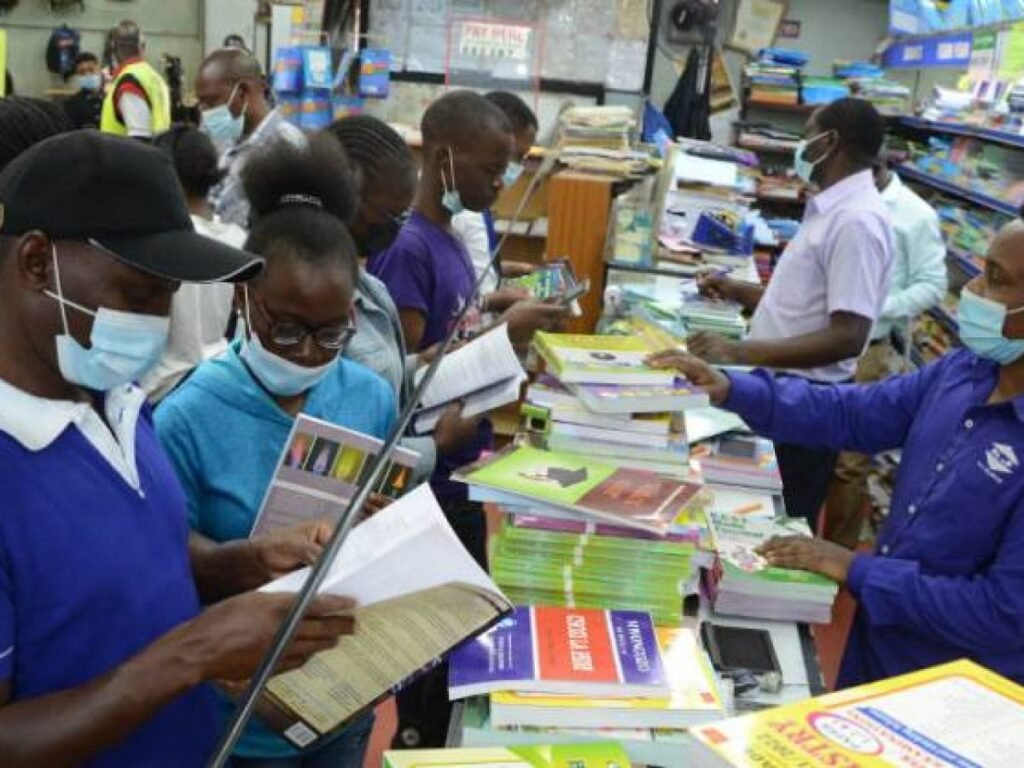
Ms. Gakii pointed out a notable price difference, citing an example of a new Oxford dictionary priced at almost Sh1,900, compared to a used one available for Sh1400.
She justified her preference for the older but more affordable option, emphasizing that they contain the same content.
Janet Wamuyu, a second-hand books trader, shed light on the lucrative nature of their business during the opening of the first term, which coincides with the peak season.
As learners transition to new grades or classes, there is a heightened demand for various books, including dictionaries, Kamusi, and Golden Bells.

Wamuyu explained that this period, especially when Form-One students are joining school, facilitates easy acquisition of books for new stock.
The trading process involves exchanging books for the next grade or class at a lower rate, providing an economical alternative for parents instead of purchasing an entirely new set of books.
She further noted that their source of new stock comes from parents whose children have completed their studies and no longer require the books.
Despite the success during the peak season, Wamuyu acknowledged the challenges faced during other times of the year when only a few revision books are in demand, highlighting the cyclical nature of the business in Meru County.






